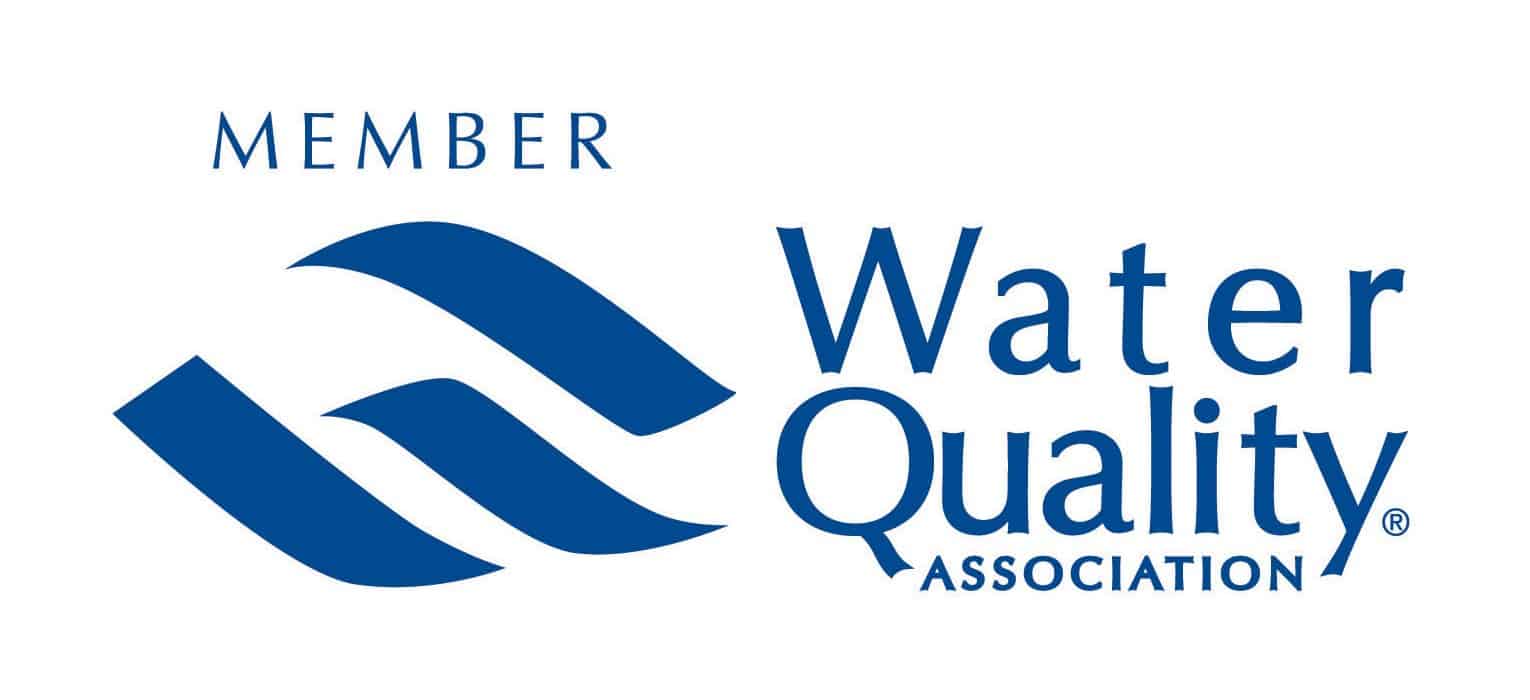What Buyers and Sellers Need to Understand About a Home Inspection
Are you going to be getting a home inspection? Home inspections are a vital part of the real estate transaction process, so it makes sense to learn as much as you can about them.
The more you know about what they entail, and more importantly, how they affect you as a buyer or seller, the more confident you will be moving forward with your transaction.
If you’re buying or selling a home, by the time you’re done reading, you should be well informed on the ins and outs of an inspection. The inspection day will be one of the most vital hurdles in the sale.
Read on to learn all you need to know about how a home inspection works. Buyers and sellers should understand that an inspection does not pass or fail a property.
What is a Home Inspection?
A professional home inspection is a top to bottom overview of a property conducted by a licensed inspector. A reputable inspector will spend hours looking over a property carefully to evaluate its present condition. The size of the home and the problems discovered will ultimately determine the time it takes to complete.
Buyers will have a home inspection contingency in their real estate contract that will give them a specified period of time to conduct the inspections. At times, additional inspections may be warranted by qualified contractors if the inspector deems it necessary.
This is referred to as the due diligence period. When a home inspection is completed, you should have a very good idea of the property’s condition. It is not uncommon at all for a home inspector to find several defects. No house is perfect.
Buyers may choose to terminate the real estate contract If they are not satisfied with the inspection results.
What Buyers Need to Know About A Home Inspection
When buying a home, here is what you will need to know about the home inspection process:
How to Pick a Home Inspector
Home inspectors play an integral role in the vast majority of real estate transactions. It is easy to see why picking the right home inspector is vital.
You want to know that the home you are buying is something you will be satisfied with. Given the magnitude of the role a home inspector plays, it will be crucial to choose the right one.
Here are a few pointers to consider in your search for a home inspector:
- Get a reference from your real estate agent.
- Look for a company that is bonded and insured.
- Verify that the inspection company only does inspections – not home repairs and renovations.
- Find out what the inspection includes and how long it takes.
- Get references for your potential home inspectors.
- Please verify that you can accompany the inspector while he or she goes through the home.
- Request a sample inspection report.
- Compare the cost of hiring different companies.
- See if you can find a home inspector with experience in the type of home you are looking at.
- Choose an ASHI certified or InterNACHI inspector. These are highly respected organizations that offer home inspectors higher levels of training and certifications.
When trying to find a home inspector, you may also want to use Google to help. Try searching such as “home inspection near me” or “home inspectors near me.” Doing an online search should provide plenty of options for local home inspectors.
American Society of Home Inspectors
Once you have identified a few home inspectors, you should see if they are a member of The American Society of Home Inspectors. ASHI certified is short for the American Society of Home Inspectors. Homebuyers can feel extra confident they are working with an excellent home inspector when they are ASHI certified. The American Society of Home Inspectors has a rigorous course in order to become certified.
You can expect you will get a thorough inspection, and the home inspector will know their stuff. When searching for a home inspector, having this certification should make you more confident you’re making an excellent choice. Quite often, a professional home inspector will be able to spot potential problems before they occur.
When working with an ASHI inspector, you will receive a detailed home inspection report after the inspection. The report will detail all of the major issues. There will be special emphasis paid to safety issues. A professional inspector will have the report to you in a timely fashion. They know there is some urgency based on the inspection contingency in the contract.
With ASHI certification, you will have the confidence you have a qualified inspector and not someone who will be rushing.
Questions for Home Inspectors
When the home inspector finishes looking at the home you plan on buying; you will need to ask him or her some questions. Hopefully, you will have lots of questions. Of course, it can help know what questions are important for buyers to ask a home inspector.
Here is a list of summary questions for home inspectors and short explanations about each. Notice some of these things should be asked before the inspection takes place and others after completion. Inspector questions are smart to ask, especially as a first-time buyer.
- How much does the home inspection cost?
- What is covered in the home inspection?
- How is the home inspection done?
- Do you have a sample report I can look at?
- Can you explain this to me? Home inspectors should be glad to explain their observations.
- How big a problem is this? It would help if you had a perspective on what issues are most pressing.
- Do I need an expert to look at this problem? Diagnosing issues sometimes requires more specific expertise.
- Is this problem normal? You want to know if a problem is common in most homes or more unusual.
- Can you advise me on things I should fix when I move into the home? Some problems are better off addressed immediately when you move in.
How to Negotiate After a Home Inspection
No home is perfect, but some are definitely worse than others. Following the home inspection, there is a chance that you will need to negotiate at least some repairs. Consider the following before you begin:
Credits are often better than repairs.
You can probably get credit instead of actual repairs, which can be beneficial for your sale. Credits are more comfortable for the seller to offer than going through the trouble of getting repairs done. For you, it is more likely that the repairs will be of good quality when you are the one hiring the work to be done.
In this case, you would ask the seller to lower the price. A lower price will allow you to make the repairs after closing.
Trust your Realtor.
Your agent knows what repairs are vital and what repairs can be dealt with later. Trust your agent to guide you through this process, negotiating for your best interests without threatening the deal.
Keep in mind the purpose of a home inspection is to identify major structural, mechanical, or safety defects.
Don’t be the buyer that thinks a home inspection is your opportunity to present a “punch list” of everything wrong with the house. Focus on significant issues that should be repaired.
Don’t bog down the sale by asking for the moon. Be a reasonable buyer.
What Are Reasonable Home Inspection Repair Requests and What Are Not
Some inspection repair requests are entirely legit—and probably expected. Of course, there are plenty of home inspection requests that will not be seen as reasonable. You want to make requests that are likely to be granted, not demands that will frustrate the seller and maybe kill the transaction. That’s not how a home inspection works.
Inspections for houses should not be seen as an opportunity to create a punch list to make the property perfect.
Some unreasonable things to ask a seller to do include:
- Cosmetic issues or other minor issues
- Anything under $100
- A window with a failed seal (if you saw it before making an offer)
- Renovations you are planning.
- Cracks in a basement floor
- Loose fixtures, railings, and similar issues that are simple to fix
- Minor water damage that you saw before making an offer
- External buildings – like sheds, outhouses, etc.
- Cosmetic landscaping or minor yard problems
The bottom line is you should be focusing on the items that have the necessary repairs required.
What Might a Home Inspector Miss at The Inspection?
Keep in mind that home inspectors are human, just like the rest of us. They do make mistakes from time to time. It would be best if you understood there could be defects that a home inspector misses during a home inspection. In the article, you will see an outline of some of the more common problems that are not always easy to pick up on.
Keep in mind a home inspector is only spending a few hours at a home. It is tough to learn about every property in that amount of time. Can you imagine being on your back in a crawl space trying to diagnose if there are problems?
It would be wise to ask the seller if they have ever had any problems in these particular home areas.
A Septic System Inspection is Not Part of a Home Inspection
If you are buying a home serviced by a septic system, it is essential to note that a general home inspector does not inspect them. Septic inspections are conducted by specialized inspectors who are licensed in this field. If the seller is not required by law in their state to have the septic system inspected, you definitely should!
The septic system is a vital component of any home. When a septic system needs replacement, it costs a lot of money to replace. In fact, the septic system is one of the most costly components in a house.
When buying a home with a septic system, never skip having it inspected.
Should a New Home Have an Inspection?
Whether a new home should have an inspection is always up for debate. If you are purchasing from a builder with an impeccable reputation for building quality properties, you can probably skip the inspection.
On the other hand, if you are unsure you’re buying from someone with a top reputation, it may be worth it. In most areas of the country, new homes go through a fairly extensive inspection process through local officials. Most of the time, they do a decent job catching any glaring problems. Are they perfect – no, of course not.
If you have any doubts, get it inspected. Keep in mind; however, most builders will not let you have a home inspection contingency that would allow you to escape the contract.
The Home Inspection is Not Gospel
As mentioned above, home inspectors do make mistakes. In my thirty-four years of selling homes, I have seen far too many times where buyers think everything that comes out of a home inspector’s mouth is the gospel. Far from it!
As a buyer, you should always keep an open mind. An inspection of a house should not be taken as a rubber stamp of truth. Home inspection mistakes happen quite a bit. Even the most reputable home inspector can make mistakes. They are human, just like the rest of us.
What Sellers Need to Know About Home Inspections
When selling a home, here is what you will need to know about home inspections:
How to Prepare for a Home Inspection
The first rule for every home inspection is: Do not conceal any defects you know are in the home.
The home inspector will find them anyway, and you will possibly be breaking the law.
Now that you have that rule down, here are some more ways you can be ready for the buyer’s home inspection:
- If you have moved out of the house, make sure the power remains on.
- Please make sure all light bulbs are working by changing them before the inspection. The inspector will want to be able to view all areas of your home. They won’t need additional time to see if the receptacle is not working or is just a blown light bulb.
- Thin out your closets of clothes so the inspector can see inside them.
- Remove items away from basement walls so they can be inspected for cracks and water penetration areas.
- If there is access to the attic in a closet, make sure it is accessible.
- Please change the filters to your furnace and leave any service tags so the inspector can see them.
- If your home is vacant, make sure the power is on and there is fuel so that the systems can be inspected.
Keep in mind that the home inspection is one of the most significant hurdles for a seller to clear. It is vital to make sure your house does not have any glaring defects. Do what you can to make this part of the transaction go smoothly.
Pros and Cons of a Pre-Listing Home Inspection
Some sellers choose to have their own home inspection before listing for sale. They do so to have the confidence that potential buyers and their inspector will find the property acceptable. Potential problems can be dealt with before it’s the buyers’ turn.
Pre-listing home inspections are becoming more common because they give sellers extra control over a sale. Understanding the condition of your home before the buyer’s home inspection takes place is worthwhile. The expense is minimal compared to dealing with problems you didn’t know about or, worse, lose the sale.
A professional home inspection can help you do just that. Just like a buyer does, you will get a detailed report outlining the issues discovered. Of course, there are pros and cons you need to consider.
PROS of Having a Home Inspection Before Selling:
- You find out what condition your home is in.
- Pricing the home accurately is much easier.
- Minimize stress.
- You can make repairs.
- Less likelihood of negotiations.
- Help improve the buyer’s confidence.
- Make your real estate agent’s job easier.
CONS of Having a Home Inspection Before Selling:
- You will have to pay for the pre-listing inspection.
- Disclosure laws may require you to disclose any issues.
- There will be two inspections of your home.
Top Home Inspection Issues You Should Know About
Reasonable buyers should not expect a home to be perfect. However, they do expect it to be habitable and in decent shape. That means that some major defects will be a problem—possibly big enough to kill the sale if a home inspector finds them.
These home inspection problems that can kill home sales include:
- Structural problems
- Termites and other pests
- Drainage and signs of water damage
- Mold problems
- Radon issues
- Wiring and electrical panel issues
- Plumbing issues
- Water pressure issues
- Well water issues
- Asbestos issues
- Lead paint
- A bad roof that needs replacement
- Problems that require a structural engineer to evaluate.
Remember, these problems do not have to be the end of the world. But you will probably need to make some repairs if you want to sell the home, especially if you’re going to sell for a reasonable price.
Some of the most common problems are with electrical systems, the electric panel, and the plumbing if you have an older home.
What You Need to Repair Before Selling a House
There are plenty of home repairs that are a waste of money if done right before a sale. On the other hand, some repairs have a high return on investment because they can increase your home’s desirability and are often inexpensive.
These are some of the things that should be repaired before selling:
- Painting the rooms that need it.
- Cleaning up the exterior and adding accents, like basic landscaping, that increase curb appeal.
- Minor kitchen repairs, such as painting, installing new fixtures, and new countertops.
- Small bathroom repairs, including replacing missing tiles, cleaning up or replacing grout, and adding a new coat of paint.
- Improved lighting to make the home more inviting and spacious feeling.
- Refinishing hardwood floors.
- Make sure everything works, like doorknobs and locks.
- Pre-sale inspection—to give you time to fix what inspectors are guaranteed to find.
What to Know About Putting a House Back on the Market After a Failed Inspection
Sometimes bad luck and poor planning leave you with a failed home inspection and a lost sale. Never fear; you can list the home again and find a buyer. You do, however, have to understand the ramifications of re-listing your home again. Sometimes it is best to salvage a home sale and make the buyer’s request repairs. The most important determining factor will be if the next buyer will also want the items repaired.
If the vast majority of buyers are going to feel that the issues with your home are deal-breakers, it would be silly not to deal with them.
Remember, a failed home inspection is the number one reason why pending home sales fall through.
Some tips for moving forward include:
- Be prepared for questions about why you are listing the home again.
- Don’t get overwhelmed by emotions—you are somewhat compromised, so be more flexible in what you will and will not accept.
- Make all the repairs your agent says you need to make to avoid a similar problem when you list again.
What to Disclose After a Home Inspection
It is essential to understand that disclosure laws vary from state to state. In some places, a seller must disclose everything they know about their house.
In other areas, is it the exact opposite. This is known as Caveat Emptor, or “let the buyer beware.”
Caveat emptor does not, however, remove your obligation to answer questions honestly from a buyer. That would be considered fraud. Sometimes sellers think that selling a home as-is removes their responsibilities to be honest about their home condition. WRONG!
You must always be honest when a buyer asks you a direct question. Not doing so is an easy way to get sued.
In most states, real estate agents are held to a much higher standard and must disclose everything they know about a house. This includes information obtained from a home inspection.
Buyers and Sellers Should Both Understand These Home Inspection Nuances
Your Real Estate Agent Should Attend the Inspection
A lot of buyers and sellers will ask the question, “should my real estate agent be at the home inspection.” The answer is a resounding YES! The agent you choose to represent you is supposed to be looking after your best interests. One of the ways he or she does this is by attending the home inspection.
If your agent isn’t there, how in the world could they do the best job at representing your interests. The answer is they can’t!
There are several reasons why this is important:
- Your agent can help explain issues as the inspector identifies them.
- Some home inspectors can overemphasize an issue’s importance, causing unnecessary stress to the buyer or seller.
- The agent can only do the best possible job if he or she is aware of all the house issues.
- It is challenging to negotiate issues between buyers and sellers when you were not there firsthand to see the problem.
- It’s easy to misrepresent something when a real estate agent is not present.
Buying and Selling a Home with Lead Paint
Lead laws are in place to protect buyers and sellers. Your agent should be fully aware of existing laws and be able to explain how they pertain to your situation as a buyer or seller. The lead paint law is the only federally mandated disclosure law for every state. Points to remember:
- Most homes built before 1978 contain lead paint.
- Lead is a highly toxic substance that will affect nearly every organ in the body.
- Children six years and younger are at the most risk because they are more likely to consume the paint.
- Lead in the paint can leach into the non-lead-based paint as well, so painting over lead-based paint with modern paint is not enough to eliminate the risk.
- Sellers have to disclose any information they know about lead paint in the home.
- Home sellers do not have to test for lead-based paint.
- Sellers have to give the buyer ten days to order a test for lead-based paint.
- Sellers need to give buyers a Property Transfer Lead Paint Notification and the pamphlet, Protect Your Family from Lead in the Home.
- Professionals can remove Lead-based paint.
- Adhering to the Lead Law is not difficult.
- Buyers, once you take possession of the home via the transfer of title and there is a child under six present, you must get rid of the lead paint or follow interim control protocols.
- Interim control is a temporary fix for lead paint hazards in a home. It is different than a complete deleading because it only deals with the very worst lead paint issues.
- A permanent solution is encapsulating the lead paint.
- Encapsulating is a legal method of dealing with lead paint. Encapsulation is the process of providing a special liquid coating that is a long-lasting, effective barrier over lead paint. Regular paint is not an encapsulation.
Bonus Information For Home Inspectors
What a Real Estate Agent Wants from a Home Inspector
Reputable real estate agents want to work with home inspectors with the clients’ best interests at heart. They want someone skilled at identifying issues and explaining those issues to clients. Together, agents and inspectors can help clients get the best outcomes from each real estate transaction.
An exceptional home inspector will be as good at presenting information as they are at finding problems. The best inspectors don’t exaggerate issues to make buyers walk away from perfectly good homes. On the other side of the coin, great real estate agents don’t prevent a home inspector from doing their job.
Take a look at what a home inspector should and should not be doing. A good home inspector understands that communication is vital to everyone involved in the transaction.
Final Thoughts on Home Inspections
The home inspection process is something that both buyers and sellers should take seriously. The smoothest real estate transactions are ones where both the buyer and seller are reasonable.
Hopefully, you have gotten quite a bit of knowledge out of this home inspection checklist.




